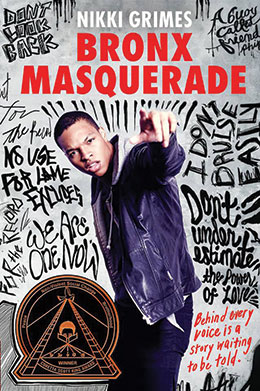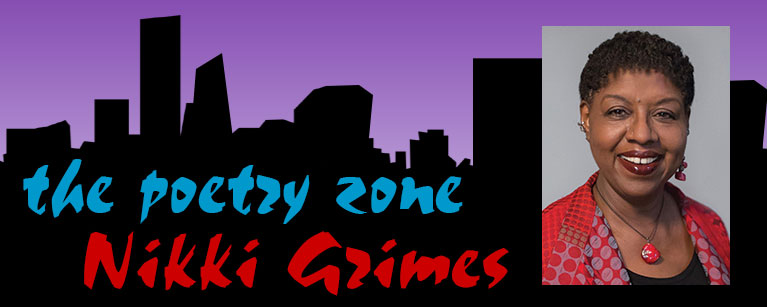
An unarmed black person dies at the hands of, or in the custody of, white policemen, and we run around as if our hair were on fire, screaming, “What can we do? What can we do?”
Nine black souls are massacred in a house of worship, in a state where the Confederate flag, symbol of hatred, flies proudly, and we run around as if our hair were on fire, screaming, “What can we do? What can we do?”
I won’t claim to have all the answers, but I certainly can suggest a few, the most important of which has nothing to do with gun control, and everything to do with empathy. We need to teach our children empathy. It’s a lot harder to murder someone you have empathy for than someone you don’t.
The perpetrator of this latest atrocity was not mentally ill, as some wish to suggest. (Please don’t insult me by suggesting every white person who kills a black person is mentally ill. I grew up with a parent who was genuinely mentally ill, so I, for one, know the difference. Oh, and, I should note: she didn’t kill anyone.) Nor was this perpetrator born with hate in his heart. No one is. Hatred is a seed that must be planted, watered, fertilized, and nurtured. The ugly fruit of hatred is not produced in a single, sudden moment. Rather, it ripens over time. It is not inevitable. I repeat: race hatred is not inevitable.
As a seedling, hatred can be uprooted early on. Or, it can be left untouched in its own environment and allowed to produce a head and heart both poisoned, and poisonous. While children are yet children, and still under our care, we adults get to influence which of those two things happen.
Instead of looking the other way while hatred takes root in young hearts and minds, why not try this: Plant the seeds of empathy. Teach the young to feel the heartbeats of races and cultures other than their own. Replace any possible fear of the unknown, with knowledge of the knowable. Teach them the ways in which we humans are more alike than we are different. Teach them that the most important common denominator is the human heart. Start with a book.
Give young readers books by and about peoples labeled “other.” I’m not talking about one or two books, here and there. I’m talking about spreading diverse books throughout the curriculum, beginning in elementary grades, and continuing through to high school. Why? Because racism is systemic and teaching empathy, teaching diversity, needs to be systemic, too.
You say you want to change the dynamic of race relations in America. Well, here is a place to begin—unless, of course, you’re not really serious. In that case, by all means, keep running around like your hair is on fire, screaming, “What can we do? What can we do?” every time an unarmed black person is killed by a white policeman, or a group of innocent black people is massacred. Just don’t expect me to keep listening. I’ve already told you where to begin.



9 Responses
Thank you for this post, Nikki! A colleague (Megan Ginther) and I present on a unit we teach around EMPATHY, and we’d love to use this post in our presentation. Is that okay? I believe you’ve nailed it.
Thank you so much for your interest in using this piece. This is precisely the response I’d hoped for! It would be wonderful if you’d share the link with your students, or anyone in the educational system you work with this piece, I hope to cast bread on the waters and look forward to seeing what returns.
Your common sense opinion is so well stated. May I share it on facebook?
Yes. Please feel free to share this post. That would give me great pleasure.
So wonderful to read this!
This is my life’s work and passion. Would love to talk to you. Am visiting the U.S. from Pakistan. Please Google Basarat Kazim and the Alif Laila Book Bus Society to find out more about me.
I would love to speak with you. I’m in the middle of a conference this week, though, so it will have to wait until early July. I hope you will still be available at that time. Do let me know, and we will see what we can arrange.
Just came across this post, Nikki, and I hope others will take heed. When we behave as if our actions have no consequences — or that whatever we do is just — we are doomed. It’s unfortunate that our society has gotten to this point. I just saw a video of a black student beating up his white teacher, and everyone in the class was just watching, doing nothing…and I could not comprehend what was (or was NOT) going through their minds. Empathy stretches beyond race, status, religion…and you’re right, more people should be practicing it!
So glad you found, this, Matt. Empathy is a message we all need to spread. Thanks for being part of the solution.
Dear Mrs. Grimes,
I wanted to tell you about the Open Mic Wednesday that happened in my classroom today!! I started my year off by having my 7th graders read aloud your book Bronx Masquerade. Each kid took to the spotlight and read one of the character’s parts, and then we talked about identity and boxes and stereotypes and really seeing people who we think we already knew. I challenged them to take inspiration from your poems and write their own. I challenged them to show their vulnerable side, and so many of them did! I would love to share some of their poems with you; I think you would be proud of how your poetry inspired many of my kids to be brave, to think differently and to see people outside the boxes. Thank you for your book, your poetry and for wanting people to see one another.
Sincerely,
Belinda